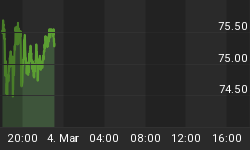Last month we stated: "we should expect rocket-launched (oh they've saved us) bear market rallies." Since that time, the DJIA has had two separate blastoffs. That's all it took for investors to forget about the massive deflation that is happening in U.S. neighborhoods. We view the rise of the last two months as a breather before more serious selling takes hold. Goldman Sachs agrees and is warning 'delusional' investors of a sell-off of "a further 15pc over the 'near term.'" Warren Buffett has also recently stated "the recession will be more severe than most expect." Meanwhile, the Fed is wondering why all of its extraordinary measures have not increased liquidity. We advise investors not to get swept up in the bullish hype of the recent upturn and follow the old Wall Street adage: "Sell in May and go away."
"Panic, as a health officer, sweeping the garbage out of Wall Street"
Frank Bellew, New York Daily Graphic, September 29, 1873 -- American Social History Project.
Taxes - A Good Reason To Sell
During a bear market taxes rise. In 1932, top income rates were raised from 25 to 63 percent and the Estate Tax was doubled with the Revenue Act. And that was with a Republican in the White House! Three years later, the Wealth Tax Act was enacted raising the top income tax rate to 75%. Similarly, according to John Wallis in the "Depression of 1839 to 1843;" "In 1842...Americans in Indiana and Ohio were saddled with property tax rates eight times higher than in 1836. New York, Pennsylvania, Maryland, and Massachusetts all had state property taxes, where they had none in 1830." We would therefore recommend investors to take advantage of relatively low tax rates to sell. Especially since David Walker, the U.S. Comptroller General, "a leading voice for fiscal responsibility," has resigned in disgust.
Margin Call At The Fed?
There is a precedent for a crisis that becomes too great even for the lender of last resort. In the Panic of 1825, the Bank of England itself came under suspicion. With its gold reserves dwindling to "under a million pounds" according to Edward Chancellor author of Devil Take the Hindmost, the Morning Chronicle warned:
"the Bank of England has to choose between its own insolvency, and the insolvency of these imprudent speculations, and as it is impossible, in the present state of things, for the Bank, with any regard to its own safety, to stretch out a friendly hand to them, the consequences may easily be foreseen."
Chancellor concludes, "In other words the Bank of England was not in the position to act as the lender of last resort." If the Federal Reserve continues to use more of its own balance sheet to support the mortgage market, look for this subject to be revisited.
Even The Curmudgeon Has Trouble Cashing Out
In Edward Chancellor's description of the boom of the early 1820's, Britain's "national sense of well being was so great, according to the Annual Register, that 'even the country gentleman, the most querulous of all classes...could no longer complain.'" Chancellor continues: "speculation flared up in commodities...the anticipation of exports to liberated countries provoked fears of raw material shortages." Shortly after, a "torrent of distrust" enveloped credit markets, and fickle Fortune had left. In 1826, stocks were down 80%, while some "went unquoted."
At Lamont Trading Advisors, we provide wealth preservation strategies for our clients. For more information, contact us. Our monthly Investment Analysis Report requires a subscription fee of $40 a month. Current subscribers are allowed to freely distribute this report with proper attribution.
***No graph, chart, formula or other device offered can in and of itself be used to make trading decisions.















